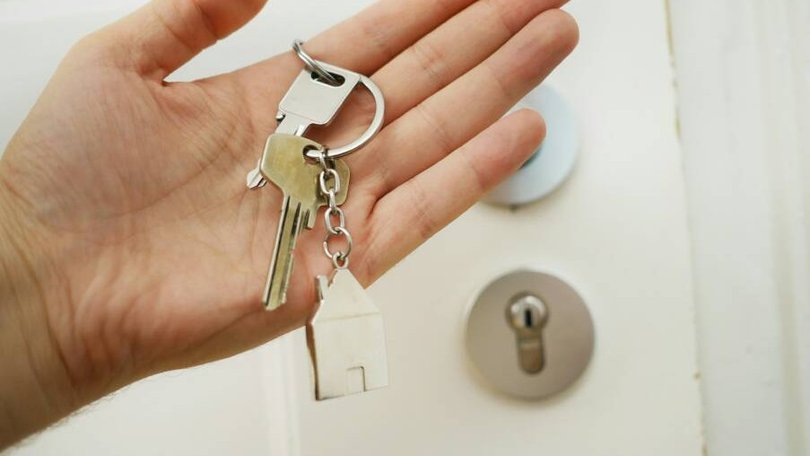What to do before you even think about a home loan

So, you're contemplating buying a property and it's an exciting and daunting time.
On the surface it seems easy - find property, get a mortgage and you're done. But there is actually quite a bit more to get your head around than that, even just with securing your mortgage component.
Sign up to The Nightly's newsletters.
Get the first look at the digital newspaper, curated daily stories and breaking headlines delivered to your inbox.
By continuing you agree to our Terms and Privacy Policy.Here are some things to get your house in order (pun intended) to avoid heartache and future frustration (there is enough of that in the property search alone!).
Use this as a checklist to make sure you've thought everything through and ticked everything off before you find the place of your dreams.
- Spring clean your spending
Generally, banks will want to see that you have a good history of savings before they approve you for debt. They will want to understand your income, current liabilities and where you are spending your cash. They will also look at your credit history (you can check yours and if anything is incorrect, dispute it).
Spending some time reviewing all of these is a good way to put you in the best position to get approved. If you have any debts, it will reduce your borrowing capacity - so could make sense to look at paying these down. There are some potential changes afoot if you have a HECS debt, so stay up to date on how that may impact your situation.
Lenders want proof - lots of it. You'll need to provide:
- Proof of ID
- Payslips or income verification
- 3-6 months of bank statements
- A detailed snapshot of your existing debts and expenses
- A summary of your assets and saving capacity
Tip: Also worth noting that if you have a credit card, but don't have money owing on it - most banks will assess you as if you do. You may want to close or reduce the limits to increase your borrowing capacity.
2. Understand your borrowing power
What type of property you should be looking for generally comes down to a few things - price, location and property type. Often, the price will dictate the rest. It's important to find out how much you can borrow, of course remembering that what you should borrow might be different. Factor in things like career changes, parental leave down the track and other regular running costs your property will have, like strata, rates and the ability to handle any interest rate changes in the future.
Tip: Initially you can use a borrowing calculator to get a ballpark figure, then run your own numbers. How much could you repay monthly without sacrificing what's most important to you? If you aren't sure you would be able to make the expected mortgage amount work with your other costs, try putting the difference between your current rent or mortgage and the new expected mortgage amount in savings for a few months and see how it feels (I call this a 'mock mortgage').
3. Deposit game plan
Getting a decent deposit in a market that continues to rise is one of the biggest hurdles buyers face. There are a number of government initiatives that you may be eligible for, so worth investigating. Beyond that, you may choose to have a lower deposit to get your foot in the door and pay Lenders Mortgage Insurance (LMI), you may have someone who can go Guarantor, or you might have an occupation that allows you to borrow with a smaller deposit. Consider if any of these are right and relevant for you.
Here are some of the initiatives to help first-home buyers:
- First Home Guarantee Scheme - 5 per cent Minimum Deposit. 35,000 places available in the 25/26FY.
- Regional First Home Buyer Guarantee - 5 per cent Minimum Deposit for eligible regional first home buyers. 10,000 places are available 25/26 FY
- Family Home Guarantee- 2 per cent Minimum Deposit. Available for single parents or guardians. 5,000 places available in 25/26 FY.
- Help to Buy - Whilst not currently available in all areas of Australia (yet), this will allow 40,000 people to buy with an equity contribution from the Government.
- Stamp Duty Concessions - Check to see the eligibility criteria based on your State/Territory.
Tip: If you are buying your first home to live in, you can also make additional contributions to your Superannuation and use them under the First Home Super Saver Scheme. For all of these, make sure you read the fine print to see if you meet the criteria and conditions for eligibility.
4. Consider which type of loan (and lender) fits you
Not all home loans are created equal. Some offer ultra-low variable rates but come with hefty fees. Others offer fixed rates that help you budget, but less flexibility if things change.
Key features to think about:
- Fixed vs. Variable - Consider if you want to lock in an interest rate for a set period, or have a variable rate. Most fixed rate loans have less flexibility in terms of how much you can make in additional repayments annually, or the ability to have an offset feature (do your research). Variable rates generally have more flexibility, but if interest rates increase - your mortgage rate will go up. You may even consider a hybrid of both if you want some certainty (which fixed gives you) and flexibility (which variable offers).
- Offset accounts - can help you reduce interest. Some offer multiple-offset accounts, which helps you bucket and categorise your money, whilst simultaneously reducing your interest payable on your debt amount.
- Redraw facilities - may be useful if you're planning ahead for renovations or life events.
- Loan terms - shorter loans = faster repayments, but higher monthly costs.
Tip: Look beyond the headline rate and consider what features are going to work best for you and your needs.
5. Get help
If the above sounds like a lot (and it can be!), find a Mortgage Broker who can help you navigate the process. They will generally have access to a number of lenders, know the policies of each one and can help you figure out which one works best for you. They normally get paid by the bank (but always best to double check and see if they have any fees you need to pay them).
Tip: Look for a Mortgage Broker who will not only help you initially get a loan, but continue to get the best deal. Ask them if they will do annual reviews and negotiations on your behalf.
6. Pre-Approval
Pre-approval gives you confidence when house hunting and signals to sellers that you're serious. But be aware: it's conditional. If your financial situation changes, or the property doesn't meet lender criteria, it can still fall through.
Tip: Make sure you find out what restrictions a lender may put on your search. They may have post-code blackouts, not want to lend to certain property titles, or won't go forward with your lending if your situation changes between pre-approval stage and purchase. Also find out how long the pre-approval is valid for and how to get pre-approved again if you need to.
There are many moving parts to consider when you are buying a place.
Ultimately, you want to get as organised as possible and be supported by experts who can help you make the right decision for your situation. Getting it wrong can be seriously costly, so allocate some time to working through the steps and options, so you're in the best position to buy confidently.
------------
Jessica Brady is a qualified Financial Adviser and leading money expert. She is on a mission to educate and empower everyday Australians to be better with money through her online money programs and via the Financially Fierce Podcast. You can learn more at jessicabrady.com.au
This article is general advice only, all of the comments above do not take into account your objectives, financial situation or needs.
Before acting on any information, you should consider the appropriateness of the information provided and the nature of the relevant financial product having regard to your objectives, financial situation and needs. Jessica is licenced through Paragem Pty Ltd - AFSL 297276. ABN 16 108 571 875, Authorised Representative Number 001259972.
Originally published as What to do before you even think about a home loan
